Single-cell analyses and host genetics highlight the role of innate immune cells in COVID-19 severity
- PMID: 37095364
- PMCID: PMC10181941
- DOI: 10.1038/s41588-023-01375-1
Single-cell analyses and host genetics highlight the role of innate immune cells in COVID-19 severity
Abstract
Mechanisms underpinning the dysfunctional immune response in severe acute respiratory syndrome coronavirus 2 infection are elusive. We analyzed single-cell transcriptomes and T and B cell receptors (BCR) of >895,000 peripheral blood mononuclear cells from 73 coronavirus disease 2019 (COVID-19) patients and 75 healthy controls of Japanese ancestry with host genetic data. COVID-19 patients showed a low fraction of nonclassical monocytes (ncMono). We report downregulated cell transitions from classical monocytes to ncMono in COVID-19 with reduced CXCL10 expression in ncMono in severe disease. Cell-cell communication analysis inferred decreased cellular interactions involving ncMono in severe COVID-19. Clonal expansions of BCR were evident in the plasmablasts of patients. Putative disease genes identified by COVID-19 genome-wide association study showed cell type-specific expressions in monocytes and dendritic cells. A COVID-19-associated risk variant at the IFNAR2 locus (rs13050728) had context-specific and monocyte-specific expression quantitative trait loci effects. Our study highlights biological and host genetic involvement of innate immune cells in COVID-19 severity.
© 2023. The Author(s).
Conflict of interest statement
All authors declare no conflict of interest.
Figures
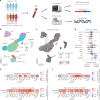
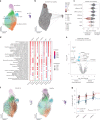
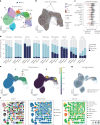
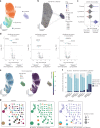
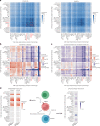

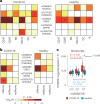
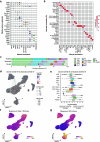
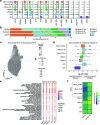
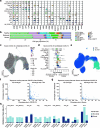
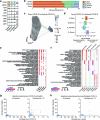



References
Publication types
MeSH terms
LinkOut - more resources
Full Text Sources
Medical

